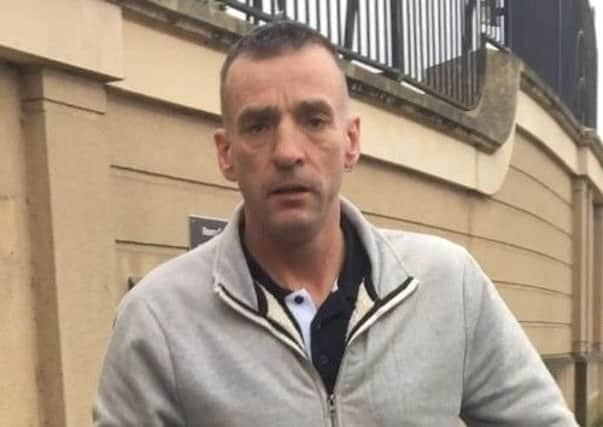Lorry driver jailed for ‘wanton destruction’ of Narrow Water memorial


Ordering Robert James McKeegan to spend a further six months on licence, District Judge Peter Magill told the 44-year-old at Newry Magistrates’ Court: “The fact of the matter is that this was a quite appalling offence of wanton destruction of a memorial to the dead.
“Whether the dead were British soldiers or not matters little to this court – anyone who desecrates a memorial to the dead has stepped outside the bounds of any civilised society and the only penalty which is appropriate is a period of imprisonment.”
Advertisement
Hide AdAdvertisement
Hide AdFollowing an application from defence counsel Kevin O’Hare, the judge freed McKeegan on £100 bail pending an appeal of the jail sentence.
McKeegan, from Beech Drive, Bleary, Craigavon, had earlier pleaded guilty to causing criminal damage to a memorial, intending to damage such property or being reckless as to whether such property would be damaged on October 4 last year.
Following that confession, the prosecution withdrew a further charge accusing McKeegan of having an indecent image of a child on November 14 last year.
Opening the case against him, the prosecutor outlined how, at around 7.30am that morning, police received a report of criminal damage to an Army memorial at Narrow Water.
Advertisement
Hide AdAdvertisement
Hide AdThe PPS lawyer continued that from CCTV, McKeegan could be seen getting out of his lorry while on his mobile phone and “kicking out at crosses and wreaths, damaging the memorial”.
He told the court police were able to track McKeegan’s lorry and arrest him but during police interviews he offered no comment to their questions.
In what is believed to have been the fourth attack on the memorial last year, the lawyer said the damage cost around £200.
The memorial marks the 1979 IRA double bomb attack which killed 18 soldiers, the largest single loss of life suffered by the security forces during the Troubles.
Advertisement
Hide AdAdvertisement
Hide AdTurning to the aspect of perceived hostility, which would be an aggravating factor, the PPS lawyer submitted the judge could infer hostility because it was a British Army memorial and “given the history of this jurisdiction and the perceived perception of the British Army representing a certain side of society and that this leaves no other reason for the criminal damage”.
Mr O’Hare contended, however, having got out of his lorry for a “comfort break,” McKeegan saw the memorial “in front of him and kicked out at it and lashed out”.
“His description, and it doesn’t do him any favours, is that it was wanton vandalism rather than the targeting of a specific grouping,” argued the lawyer.
He further submitted that “even if the court did not accept that explanation, it’s a bridge too far for the court to infer that it was in some way sectarian”.
Advertisement
Hide AdAdvertisement
Hide AdMr O’Hare said McKeegan was “more than willing” to pay over £200 which was “testament for the genuine regret that he feels for his actions”.
Jailing McKeegan, Judge Magill said that by waiving his right to a probation report some sentencing options were “closed to the court”, but added that “I’m not finding hostility” as a factor.